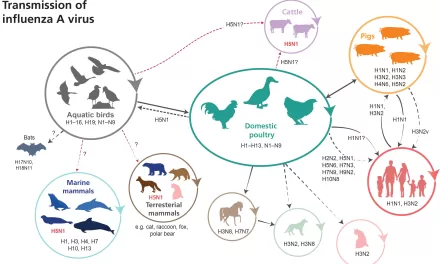A groundbreaking study from the UCLA Health Jonsson Comprehensive Cancer Center has revealed that men undergoing radiation therapy for prostate cancer who experience side effects early in treatment are at a higher risk of facing more severe long-term urinary and bowel complications. The study, published in The Lancet Oncology, sheds new light on the connection between acute and late toxicities in prostate cancer treatment.
The research found that patients who experienced moderate urinary side effects within the first three months after radiation therapy were nearly twice as likely to develop severe urinary issues years later, compared to those without early symptoms. Similarly, men with early bowel side effects had nearly double the risk of chronic bowel problems in the future.
Dr. Amar Kishan, senior author and executive vice chair of radiation oncology at UCLA’s David Geffen School of Medicine, emphasized the importance of reducing early side effects. “Men with prostate cancer are living longer than ever, and our goal is to reduce the risk of late toxicities, such as difficulty urinating or rectal bleeding, that can impact a patient’s quality of life for years,” Kishan stated. The study also highlights innovations like smaller treatment margins in prostate radiation that aim to minimize early side effects and improve long-term outcomes.
Prostate cancer, the most common cancer among men, is often treated with radiation therapy, which, while effective at controlling cancer, can harm surrounding healthy tissues, leading to both short-term (acute) and long-term (late) side effects. Acute toxicity typically includes temporary symptoms like increased urination frequency, discomfort, and bowel issues such as diarrhea. Late toxicity, however, can result in lasting problems such as urethral narrowing, blood in the urine, or rectal bleeding, significantly impacting a patient’s quality of life.
The UCLA team analyzed data from over 6,500 patients in six randomized clinical trials, looking at both short- and long-term side effects related to urinary and bowel systems. Their findings revealed a clear correlation: men with moderate or worse early side effects were more likely to experience severe late effects, even years after treatment. For instance, men who had acute urinary toxicity saw their risk of late urinary toxicity increase from 7.5% to 12.5%. Similarly, acute bowel toxicity increased the risk of late bowel issues from 12.7% to 22.5%.
“These results show that acute toxicities following prostate radiotherapy are associated with late toxicities months and years later,” said Dr. John Nikitas, the study’s first author and a resident in the department of radiation oncology at UCLA Health. “This underscores the importance of measures that reduce the risk of acute toxicities because they may also potentially improve long-term outcomes and quality of life for patients.”
As the research progresses, Dr. Kishan and his team are focusing on newer techniques like MRI-guided radiation, which allows for more precise tumor targeting, and urethral-sparing methods that protect surrounding tissues from damage. However, further studies are needed to confirm whether early interventions can prevent long-term complications.
This study underscores the potential to enhance the quality of life for prostate cancer patients by addressing acute side effects and reducing the risk of chronic issues down the line. The full findings can be found in the Lancet Oncology.
Disclaimer: The information presented in this article is based on the findings published in The Lancet Oncology and reflects the views of the authors. The study results are preliminary, and further research is needed to fully understand the long-term impacts of acute side effects in prostate cancer treatment.












